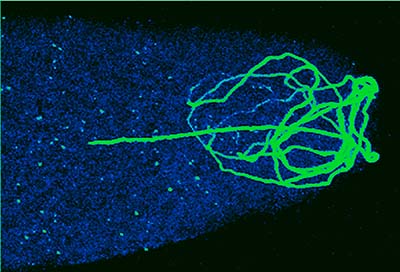Drosophila Genomics and Genetic Resources
Kyoto Institute of Technology
- Department of Drosophila Genomics and Genetic Resources
Center for Advanced Insect Research Promotion
Kyoto Institute of Technology - Saga Ippongi-cho, Ukyo-ku, Kyoto 616-8354, Japan
- Phone: 075-873-2660
- Facsimile: 075-861-0881
DGGR NEWS & EVENTS
- Home
- DGGR News & Events
- 第30回ショウジョウバエ遺伝資源センター公開セミナーのご案内
第30回ショウジョウバエ遺伝資源センター公開セミナーのご案内
Posted in センター活動,教育・研究 on June 11,2015
ショウジョウバエ遺伝資源センターでは、当センター外国人研究員のTimothy L. Karr博士による公開セミナーを下記の要領で開催します。
Karr博士の研究に興味ある方はぜひご参加ください。英語によるセミナーですが、質問は日本語でも可能です。多数の皆様のご来聴をお待ち致しております。

Karr博士の研究に興味ある方はぜひご参加ください。英語によるセミナーですが、質問は日本語でも可能です。多数の皆様のご来聴をお待ち致しております。
| 日 時 | : | 2015年 6月25日(木)午後4時30分から6時 |
| 場 所 | : | 京都工芸繊維大学松ヶ崎キャンパス総合研究棟4階多目的室 (京都市左京区松ヶ崎御所海道町) |
| 講演者 | : | Timothy L. Karr 博士 (ショウジョウバエ遺伝資源センター外国人研究員) |
| 演 題 | : |
"New frontiers in sperm biology: implications for animal and human health" |
| 要 旨 | : | As a central player in the reproductive success of sexually reproducing organisms, sperm represent a focal point in providing organismal fitness through its known role in fertilization. However, the potential roles for spermatozoa both during and following fertilization is far from clear as recent results clearly establish that sperm are much more than "DNA-delivery" vehicles. These studies represent a potential new paradigm shift in our understanding of fertilization and early development as it pertains to sperm-egg interactions both during, and following, the fertilization process. Because the entire sperm enters the egg upon fertilization (a common event across all animal taxa), knowledge of the behavior and fate of the sperm following fertilization has changed the way we think about the fertilization process. Therefore, we can now consider that each fertilization event represents the introduction of an entire sperm proteome into the egg. The recent elucidation of a variety of sperm proteomes, including insects (Drosophila melanogaster, Manduca sexta), primates (human, macaque), rodents (mouse, rat) and basal metazoans (Nematostella) is providing a wealth of new, and often surprising, insights into the proteins the make up a functional, mature spermatozoa. I will describe our reseach program that uses a combination of high throughput proteomics, molecular genetics, bioinformatics and cell biology to screen the Drosophila sperm proteome for "paternal effects", i.e., identify specific functions for those proteins delivered to the egg by the sperm. Given that over 40% of the Drosophila and human sperm proteomes overlap, these results could provide unparalleled insights into human and animal reproduction. |
